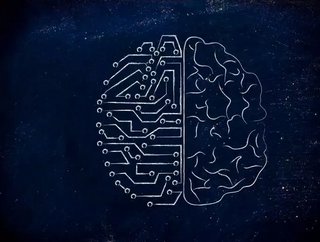Will 2018 be the year of practical AI adoption?

Yandex Data Factory, a provider of AI solutions for businesses, has been looking forward to 2018 and predicting the future of technology in manufacturing.
CEO Jane Zavalishina offered her valuable insight:
- 2018 will be the year of practical AI adoption: “AI is all too often associated with ‘futuristic’ applications like self-driving cars or robots. As a consequence, many business leaders view AI as a risky, capital-intensive innovation where ROI is not guaranteed. The truth is, AI is a very practical business tool. The most significant applications of AI are often the least visually exciting – hence why they are not often discussed in mainstream forums.
“It is the technology implementations that work behind the scenes to enhance and optimise existing business processes, as opposed to dramatic business model changes, that will bring most economic effect in 2018. These types of AI applications have specific, measurable KPIs, shorter implementation cycles, and are able to bring better results than traditional models could deliver. This “invisible AI” can help to improve things like demand prediction, product quality, or even logistics scheduling, all while earning additional efficiencies on the go. As such, in 2018, we will see a shift in focus from AI science and academia to real-life business applications and how they can bring about significant change for companies.”
- The industrial sector will significantly progress in AI use: “For businesses in the industrial sector, the beauty of AI lies in its ability to be applied with no need for capital investment or changes to existing infrastructure – making it an affordable innovation to adopt. This makes it a sector very well positioned to profit from AI in 2018
“These businesses already possess an abundance of data, have plenty of established routine and very complex processes, and are focused on optimisation due to the sector’s capital intensive, low-profit-margin nature. What’s more, in many cases automated process control is already in place. Thus, adding AI on top would require no investment and will deliver ROI within just a few months. Likewise, volume levels enable the potential to see immediate effects from implementing AI including, increasing throughput or cutting down costs. And while this impact may amount to a mere percent, for such industries this equates to results in millions of savings per year.”
- Learning to be a proper “boss” for AI: “To succeed in an AI era, companies will need to learn how to ‘employ’ it properly to help solve real business needs. This will require moving quickly with pilot projects and learning from their results, rather than trying to build an entire AI strategy from scratch.
“With more vendors offering AI-based services for all types of applications, companies should focus on becoming more proficient in testing and adopting them. Many adoption challenges are related not to the technology itself, but instead to the adjacent business aspects: choosing the correct metrics to optimise, integration of black box models into the existing decision-making cycle, correct design of experiments to measure the effect from the model use, and so on.
“This creates the need for a new skill set that lies in the integration of business management and data science. And so in 2018, businesses will need to learn how to become a competent “boss” for these new AI “employees”.
- Human/AI collaboration: “Employing AI as a decision maker in many processes previously handled by humans brings a whole new set of questions and challenges for businesses. For example, teaching human employees to interact with their AI “colleagues”, while the reasoning behind their decisions is way too complex for a human to comprehend. What about learning to trust such decisions? Or teaching AI to take into account very important, but hardly measurable factors like our ethical considerations?
“Today these topics are mostly discussed by visionaries and academics. In 2018, with wider AI adoption, we will see this topic shift into pragmatic discussions of real-life cases and best practices.”






